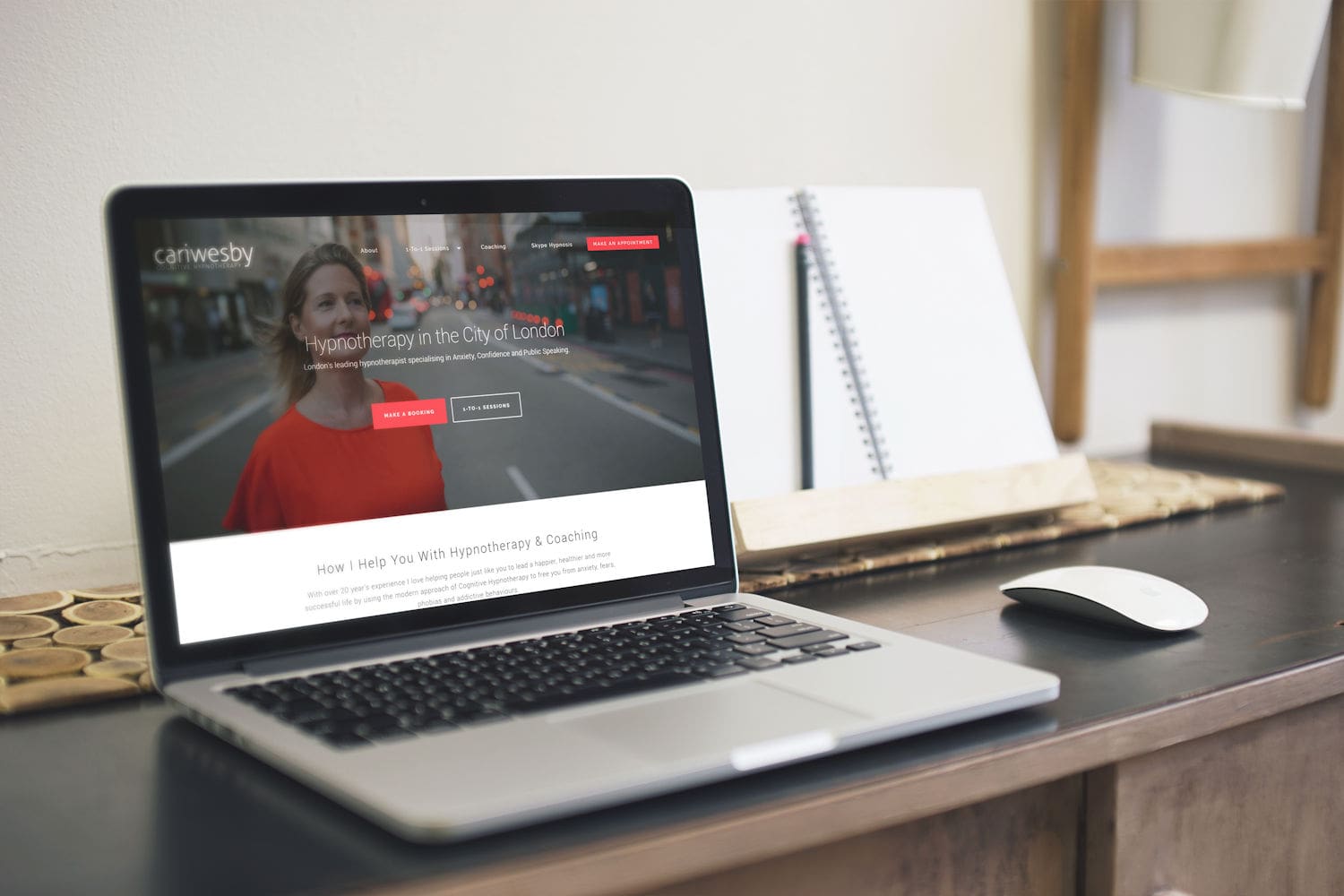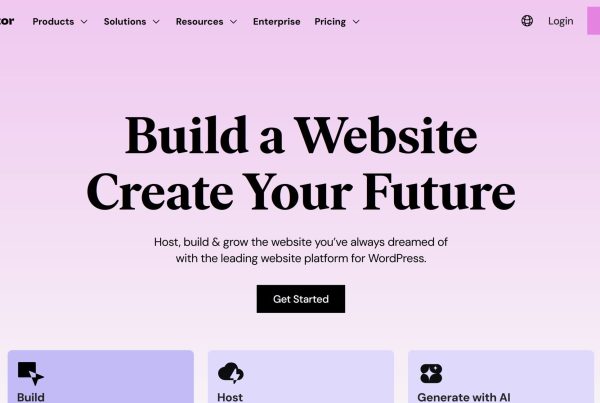How much does a website cost UK? Generally, building a website can cost from £500 to over £10,000. Costs depend on website complexity, whether you use DIY tools or hire professionals, and maintenance needs. This article will detail these factors to help you budget for your site.
Question: How much does a website cost to build?
Answer: The price of a website depends on various factors. Cude Design offers websites starting from £1,495. To understand the exact cost, we must carry out a consultation to understand your requirements.
What to consider
- Website creation costs in the UK can range from £500 to over £100,000, depending on complexity and whether you choose DIY builders or professional services.
- Ongoing expenses such as hosting, domain registration, and maintenance are crucial for the website’s longevity and must be included in your budget.
- Advanced features, industry requirements, and the level of customisation significantly influence overall website costs, so understanding these factors is key for accurate budgeting.


Cost Breakdown for Different Types of Websites
When it comes to website costs, the type of website you need plays a significant role. A basic website, often referred to as a ‘brochure-style’ site, generally consists of one to five pages and is relatively low-cost, especially if you opt for a DIY approach using website builders. These websites typically serve as an online presence to provide information about your business and services without requiring extensive functionality.
Small business websites often utilise template-based designs with limited customisation, but they may still require additional features such as branding, SEO, and e-commerce capabilities. The typical cost range for building an average small business website in the UK is between £2,500 and £10,000. This range accounts for the need for a professional-looking design and essential functionalities that help small businesses compete online.
For medium-sized and enterprise-level businesses, the costs can escalate significantly. These websites often require advanced features such as custom integrations, robust infrastructure, and bespoke website development.
The development cost for an enterprise website can range from £20,000 to over £100,000, with high-end custom WordPress sites typically falling between £1,500 and £10,000. Recognising these cost variations is vital for businesses of all sizes to plan their budgets accurately.
DIY vs Professional Web Design
Choosing between DIY website builders and professional web design services is a critical decision that impacts both your website’s cost and its overall quality. DIY website builders are a cost-effective method for those with limited budgets and basic needs. Platforms like Wix and Weebly provide templates and drag-and-drop functionalities that make it easy for anyone to create their own website without prior design experience. However, these solutions often come with limitations in terms of design flexibility and functionality, especially when compared to a professionally built website. Additionally, using a website builder tool can enhance the user experience for those opting for DIY solutions, as seen in most website builders, free website builders, and diy websites.
On the other hand, hiring professional web designers or web design agencies can lead to better design and functionality, suitable for more complex needs. While this approach involves higher upfront costs, it can result in a well-designed website that meets your specific requirements and offers a better user experience in web development, creating a professional-looking site.
The choice between DIY and professional web design largely depends on your budget, desired site results, and the complexity of your website.
DIY Website Builders
DIY website builders are ideal for individuals or small businesses looking for an affordable solution without extensive features. The typical cost range for DIY site builders is £15-£50 per month, with the average monthly cost of a small business website using DIY platforms around £21.50 plus VAT. Popular platforms like Wix and Weebly offer premade themes and drag-and-drop interfaces, making it easy to build a basic website in just a few hours.
However, customising a DIY website might incur additional costs for plugins, which typically range from £10 to £100+ per year. Additionally, while DIY builders are generally affordable and suitable for non-complex websites, they may face limitations such as poor search engine ranking and performance issues, impacting visibility and effectiveness.
Understanding these costs and limitations can help you decide if a DIY approach is right for your business.
Hiring a Freelance Web Designer
Hiring a freelance web designer can be a more cost-effective option compared to engaging a web design agency. The website design cost range for hiring a freelance developer for a basic website is between £960 and £1,500, while a small to medium-sized website typically costs between £1,100 and £5,500. Freelancers often offer lower rates compared to design studios or agencies, making them a viable option for budget-conscious businesses.
However, there are potential drawbacks to consider. Freelancers might lack the comprehensive expertise necessary for fully customised sites, and project timelines can be longer due to individual workload. Additionally, finding a freelancer who understands your business needs and expectations can be time-consuming.
Despite these challenges, freelancers can provide high-quality work at reasonable rates, especially for less complex projects.
Engaging a Web Design Agency
Engaging a web design agency typically involves higher costs, but it offers several advantages:
- The cost range for a basic website from a design agency is typically between £500 and £2,500.
- Enterprise projects can cost £20,000–£30,000 or more.
- Agencies provide access to a skilled team of professionals, which can enhance the quality and scope of your project.
When choosing an agency, it’s important to consider factors such as reliability, understanding of your needs, and accessibility. Agencies usually offer better ongoing support and maintenance compared to freelancers, ensuring your website remains up-to-date and functional.
While the cost may be higher, the investment can be justified by the superior quality and comprehensive services provided.
Ecommerce Website Costs
E-commerce websites generally incur higher costs due to the additional functionalities required, such as payment processing and product catalogues. The cost range for ecommerce websites can vary significantly, typically falling between £2,300 to £16,000 per year. Key factors influencing these costs include the number of pages, setup time, and mobile compatibility.
Higher SSL security certificates, which are essential for secure transactions, can range from £100 to £500 per year. Additionally, ecommerce sites often require functionalities such as:
- Product databases
- Payment gateways
- Inventory management systems. These functionalities elevate development costs, including payment processing fees. Understanding these factors can help businesses budget effectively for their ecommerce websites.
Simple Ecommerce Websites
The price for a basic ecommerce website in the UK can range from £1,000 to £10,000. Factors that can influence the cost of setting up a Shopify website, for example, include specific business needs, plan choice, and additional features or apps. To ensure an accurate quote when hiring a web designer for an ecommerce website, it’s essential to be specific about your requirements.
Platforms like Shopify offer a range of pricing plans, and for the most accurate and current pricing information, users should refer to the official Shopify pricing page. By understanding the costs and options available, businesses can choose a solution that fits their budget and meets their ecommerce needs.
Advanced Ecommerce Websites
Custom ecommerce websites can range from £5,000 to £40,000, depending on complexity. Mid-range ecommerce websites, which include features like:
- custom design
- enhanced UX
- advanced product filtering
- Customer loyalty programs can cost between £10,000 and £50,000. Licensing for platforms like Sitecore can require substantial yearly fees, often reaching tens to hundreds of thousands of pounds.
Integrating advanced features such as booking systems, CRM systems, and other third-party services can further elevate costs. For example, a booking system can cost between £200 and £1,000, while CRM integrations may range from £500 to £3,000. These advanced functionalities are essential for creating a high-quality ecommerce experience but come with higher development and maintenance costs.
Monthly and Ongoing Costs
Building a website is just the beginning; ongoing costs are essential for maintaining and operating it effectively. These costs include web hosting, domain registration, and regular maintenance. Hosting fees typically range from £120 to £300 annually, depending on the quality and type of hosting service you choose.
Ongoing maintenance and support are crucial to ensure your website remains functional, secure, and up-to-date. Essential ongoing costs also include domain name renewal and content updates, as well as maintaining basic functionality. It’s vital to budget for these recurring expenses to avoid unexpected financial strain and ensure the long-term success of your website.
Web Hosting Costs
Web hosting is a critical ongoing expense for any website. There are various types of hosting services available, including a hosting provider for shared hosting: the most affordable option, typically ranging from £3 to £12 per month; VPS (Virtual Private Server): generally falls between £17 to £50 per month; dedicated hosting: can cost between £60 and several hundred pounds per month; cloud hosting: can vary from £5 to £200+ monthly.
The expected annual cost for quality web hosting in the UK generally falls between £120 and £300. Factors influencing these costs include the hosting service tier, provider selection, resource demands, and any supplementary features you may need. Knowing these options and their costs helps in choosing the right hosting solution for your website.
Domain Registration
Domain registration is another essential ongoing cost for maintaining your website. Domain registration usually ranges from £5 to £30 annually. This cost can vary based on several factors. The cost depends on the number of years you choose to register your domain name for, with longer registrations often offering better value.
Timely renewal of your domain is vital for maintaining your online presence and protecting your brand.
Website Maintenance
Regular website maintenance is crucial for ensuring security, functionality, and compliance. Basic security measures, such as SSL certificates, are often included in hosting packages, but more robust security is necessary for ecommerce sites handling sensitive data. The yearly fee for an SSL Certificate is around £50.
Ongoing maintenance for a small business website typically ranges from £25 to £100 per month, while mid-range websites can expect costs from £100 to £500 per month. These costs cover essential services such as:
- Platform updates
- Security patches
- Content updates
- Performance optimisation.
Considering ongoing maintenance costs is vital to avoid financial losses, reputational damage, and legal consequences from security breaches. Purchasing a domain name for at least five to ten years is also advisable to protect your professional reputation and ensure continuity.
Additional Services and Their Costs
Engaging in additional services like SEO and content creation can significantly enhance a website’s effectiveness. These services often come with their own costs but can provide substantial returns on investment through improved visibility, user engagement, and conversion rates. Using a web design agency can offer access to a skilled team, high-standard SEO, and ongoing marketing support.
Hiring professional web copywriters can lead to better structure, SEO practices, and compelling calls-to-action, which are essential for effective communication and user engagement. DIY website solutions, however, often lack essential local SEO features, reducing visibility for businesses reliant on local customers.
Recognising these extra costs is essential for maximising your website’s cost potential.
Search Engine Optimisation (SEO)
Investing in SEO services is essential for improving a website’s visibility and ranking on search engines. Monthly costs for SEO services can start at £60 for freelancers and go up to £1,500 or more for larger agencies. The costs vary significantly based on the provider, their experience, and the complexity of the services offered.
Professional SEO services can lead to improved search engine rankings, increased traffic, and ultimately greater conversion rates. This investment can make a significant difference in your website’s performance and its ability to attract and retain customers.
Content Creation
Content creation is another critical aspect of maintaining an effective website. A small website should allocate a budget for content creation. The range is typically between £500 and £2,000. Hiring a professional web copywriter typically costs between £30 to £100 per hour, while ongoing content creation services can range from £150 to £500 per month.
High-quality content is essential for engaging users, improving SEO, and enhancing your website’s overall effectiveness.
Email Marketing
Email marketing is a powerful tool for engaging with customers and driving conversions. The estimated cost for designing an email marketing template with MailChimp is between £300 and £800. Implementing effective email marketing strategies can lead to an increase in conversion rates by up to 400%.
Investing in professional email marketing and customer relationship management can significantly enhance your marketing efforts and improve your return on investment.
Comparing Costs Across Industries
Website costs vary dramatically between industries due to unique requirements. For instance, a nonprofit organisation might benefit from lower costs due to available discounts from design agencies. In contrast, larger companies and those needing advanced functionality typically require bespoke websites, which affects their overall website’s cost.
The specific features and requirements unique to each industry also influence website design costs. For example, an ecommerce website for a retail business will have different needs and associated costs compared to a portfolio website for a creative professional.
Understanding these variations is crucial for accurately budgeting and planning your website project.
Understanding the True Cost of DIY Website Building
Creating a DIY website is a practical option for individuals with limited budgets and skills. While DIY website builders appear cost-effective with monthly fees of £10-30, hidden costs include significant time investment and potential lost customer opportunities. The ongoing expenses for the operation and maintenance of a website will cost much more than the initial building cost.
For instance, if a DIY website fails to attract just two customers monthly due to poor design or visibility, it could result in a loss of up to £120,000 a year for some service-based businesses. Additionally, the estimated opportunity cost of time spent building a website, if the hourly rate is £50 and it takes 40 hours, is £2,000. The design cost associated with poor visibility can significantly impact overall revenue.
Understanding these hidden costs can help you make a more informed decision about whether a DIY approach is right for you.
Advanced Features and Their Impact on Costs
Websites enhanced with advanced functionalities typically incur higher development and maintenance expenses. Adding features such as booking systems, CRM integrations, and custom applications can significantly elevate website costs. For example, implementing a booking system can cost between £200 and £1,000, while integrating third-party services like CRM systems can range from £500 to £3,000.
The complexity of a website increases with added features such as e-commerce capabilities and user accounts. Custom applications developed for specific business needs can further drive up costs. Knowing how these advanced features impact your website’s functionality and cost is key for accurate budgeting and planning.
Factors Influencing Website Costs
Several factors influence website costs:
- Size of the website
- The complexity of the website, where higher complexity increases cost due to more time and expertise needed
- Business size and expected traffic, which influence the requirement for complexity and lead to higher costs
The level of customisation, such as unique branding or navigation structures, can significantly increase costs for a custom site. The experience and expertise of the website developer can also lead to higher costs, reflecting the quality of work expected.
Additionally, the chosen content management system (CMS) and any associated licensing fees can influence overall website costs for content management systems. The geographical location of the development team can impact costs, with teams in lower-cost regions often providing cheaper rates. Understanding these factors can help you make informed decisions and budget effectively for your website project.
In summary, website costs in the UK can vary widely depending on several factors, including the type of website, the level of customisation, and whether you choose a DIY approach or hire professional services. Understanding these costs and the factors that influence them is crucial for effective budgeting and planning. From basic websites to complex ecommerce sites, the right approach depends on your specific needs and financial capabilities.
Investing in additional services like SEO, content creation, and email marketing can significantly enhance your website’s effectiveness and provide substantial returns on investment. By making informed decisions and planning for both upfront and ongoing costs, you can ensure your website is not only cost-effective but also high-performing and aligned with your business goals. Remember, a well-designed website is an investment in your business’s future success.
Summary
In summary, website costs in the UK can vary widely depending on several factors, including the type of website, the level of customisation, and whether you choose a DIY approach or hire professional services. Understanding these costs and the factors that influence them is crucial for effective budgeting and planning. From basic websites to complex ecommerce sites, the right approach depends on your specific needs and financial capabilities.
Investing in additional services like SEO, content creation, and email marketing can significantly enhance your website’s effectiveness and provide substantial returns on investment. By making informed decisions and planning for both upfront and ongoing costs, you can ensure your website is not only cost-effective but also high-performing and aligned with your business goals. Remember, a well-designed website is an investment in your business’s future success.
Frequently Asked Questions
How much does a basic website cost in the UK?
A basic website in the UK typically costs between £500 and £10,000, depending on how complex and customised you want it to be. It’s worth considering your needs to get a better idea of your budget!
What are the ongoing costs associated with maintaining a website?
Maintaining a website does come with ongoing costs like web hosting, domain registration, and maintenance. You can expect to pay around £120 to £300 annually for hosting, £5 to £30 for domain registration, and maintenance fees that can vary widely, from £25 to £500 monthly.
Are DIY website builders a good option for small businesses?
DIY website builders can be a great budget-friendly choice for small businesses, especially if you have basic needs. Just keep in mind that you might face some design restrictions and unexpected costs as you go along.
How much does it cost to hire a freelance web designer?
You can expect to pay around £960 to £1,500 for a basic website, while a small to medium-sized site might range from £1,100 to £5,500. Freelance web designers usually charge less than agencies, making them a cost-effective option.
What are the benefits of investing in SEO services?
Investing in SEO services is a smart move since it boosts your website’s visibility and can lead to more traffic and conversions. With prices starting around £60, it’s worth it for the potential return on investment.










